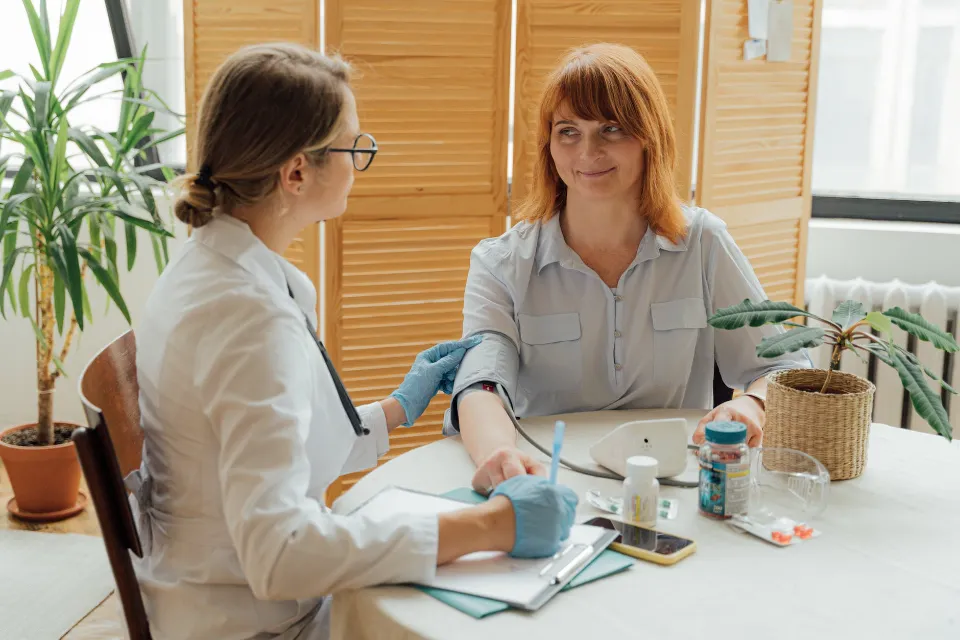
In this article, We examine the duties of a medical director and how to become a health director.
The management of healthcare organizations and related programs falls under the purview of a health director. He or she coordinates, plans, oversees, and manages numerous initiatives. Most employers require a state license to practice in order to work as a health director. A master’s degree in a field related to health is additionally required.
Please read this article carefully if you want to learn how to become a health director.
What is a Health Director?
A public health director oversees organizations that provide local, regional, and occasionally federal health services to inform the public about healthcare issues. You also carry out medical research as a public health director, such as the creation of new vaccines and the averting of pandemics and epidemics.
In addition to managing community health clinics, managing staff, and developing initiatives to enhance the health of your community, your job responsibilities also include serving as a spokesperson for public health issues.
At the very least, a bachelor’s degree in public health, prior experience working for nonprofit and governmental organizations, and strong leadership abilities are required for a career as a public health director.
How to Become a Medical Director?
Everything that needs to be managed by a medical director includes finances, schedules, technology, and investors. The level of education, experience, and certifications required for this position are a result.
Here are the steps you need to become a medical director:
Earn a Medical Degree

Medical directors must be duly licensed physicians, and obtaining a medical degree takes about eight years of postsecondary study. finish a pre-medical track science bachelor’s degree program if applicable.
After that, enroll in medical school to learn the theoretical underpinnings of medicine required for practice and to gain practical clinical experience under the supervision of experienced medical professionals.
A Medical Doctorate (MD) or a Doctor of Osteopathic Medicine (DO) will be yours once you have completed your medical education.
Complete Medical Training
After medical school, finish the mandatory internship and residency programs. Through your internship, you can learn through doing, receive training in your field of medicine, and provide care.
You spend at least three years diagnosing and treating patients with the aid of other healthcare professionals during your residency. You might speak with the medical director of your residency program to get suggestions and direction.
You may want to look into additional internships for more advanced mentored training in your field after you’ve finished your training and internships.
Pursue Board Certification
Typically, family medicine, emergency care, or occupational health board certification is required for medical directors. You might also need to obtain board-certified credentials as a medical doctor to prove your expertise in a specific medical area.
The recognized authority for specialty certification is the American Board of Medical Specialties. You frequently need to pass an exam in addition to having a certain number of years of experience in order to obtain these certifications.
Become Licensed to Practice Medicine
To work in a medical setting, all medical directors must possess a current medical license. The license must be current in the state where you are submitting a job application. Your residency training is usually when the certification and licensing processes take place.
You must pass certification exams offered by the Educational Commission for Foreign Medical Graduates in order to obtain your medical license. After that, you must pass the U.S. U.S. Medical Licensing Examination When you have completed this, you can then apply for a license to practice medicine in the state where you wish to work.
You must continue to follow state and board regulations if you want to pursue this advanced position. You must additionally pursue any continuing education and training mandated by your board and licensing organization.
Get Experience

Before becoming a medical doctor, you typically need to practice medicine for many years as a licensed physician. Candidates for medical director positions frequently have at least 10 years of clinical experience preferred by employers. It will take you about 20 years to become a medical director.
Consider Earning Voluntary Certification
Although it is not required, having a Certified Medical Director in Long-Term Care (CMD) certificate can be useful. CMD can attest to your attainment of credentials in managerial and clinical settings, both of which are crucial to a medical director’s job.
To become a CMD, you must become certified by the American Board of Post-Acute and Long-Term Care Medicine (ABPLM), take part in fellowship programs, continue your medical education, and attend medical direction courses that have been approved by the ABPLM and supported by the Society for Post-Acute and Long-Term Care Medicine.
Gain Clinical Teaching Experience
Those who are interested in becoming medical directors may find it helpful to have teaching experience. As a clinical educator, you support students and medical residents as they learn theoretical information and hone their bedside manners.
In hospitals and clinics that specialize in medical training as well as in medical wings, clinical teachers act as mentors.
Average Salary of a Medical Director
A medical director’s yearly salary in the United States is on average $226,233. The salary ranges from $84,000 to $435,000 annually. Potential earnings may vary depending on experience level, employment status, and medical specialization.
Conclusion
The fundamental requirements for becoming a public health director vary by state but typically include a master’s degree and a license to practice medicine in that state.
You might need to practice medicine for a certain number of years and hold board certification in your specialty in order to work as a clinical trainer.
